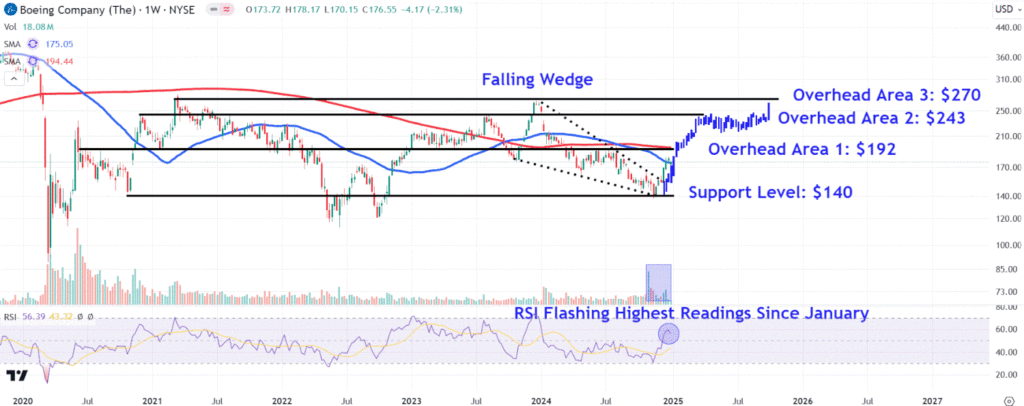Boeing Shares Fall After South Korea Orders Inspection of 737-800 Planes
Boeing shares fell over 2% after South Korea ordered an inspection of all 737-800 planes following a Jeju Air crash that claimed 179 lives over the weekend. The shares have shown an upward trend recently, signaling a potential bullish reversal. Investors should keep an eye on key resistance levels at $192, $243, and $270, as well as a crucial support level at $140.
Boeing’s Turbulent 2024
Boeing shares have faced difficulties in 2024 due to aircraft quality issues and a prolonged strike by union machinists. These challenges led the company to raise additional capital to maintain their credit rating and address cash flow issues. Despite a 33% loss in value this year, the stock has rebounded by 14% in the past month following the resumption of production for the 737 MAX jets.
Technical Analysis of Boeing’s Weekly Chart
After breaking out from a falling wedge pattern on strong volume, Boeing shares have shown bullish potential. The stock remains above the 50-week moving average, indicating buying pressure. The relative strength index (RSI) also suggests improving momentum, reaching its highest levels since January.
Key Price Levels to Watch
If the shares continue to rise, they could face resistance around $192, where the 200-week moving average and a trendline intersect. A breakthrough could lead to a move towards $243, a level with historical swing highs. Reaching $270 may encounter selling pressure, as it aligns with previous peaks and a projected target based on the stock’s trend.
On the downside, investors should monitor the $140 level for potential buying opportunities. This area aligns with the lower trendline of the falling wedge pattern and previous price points dating back to October 2020.
It is important to note that the information provided here is for informational purposes only. Readers should conduct their own research before making any investment decisions.
Source : www.investopedia.com
